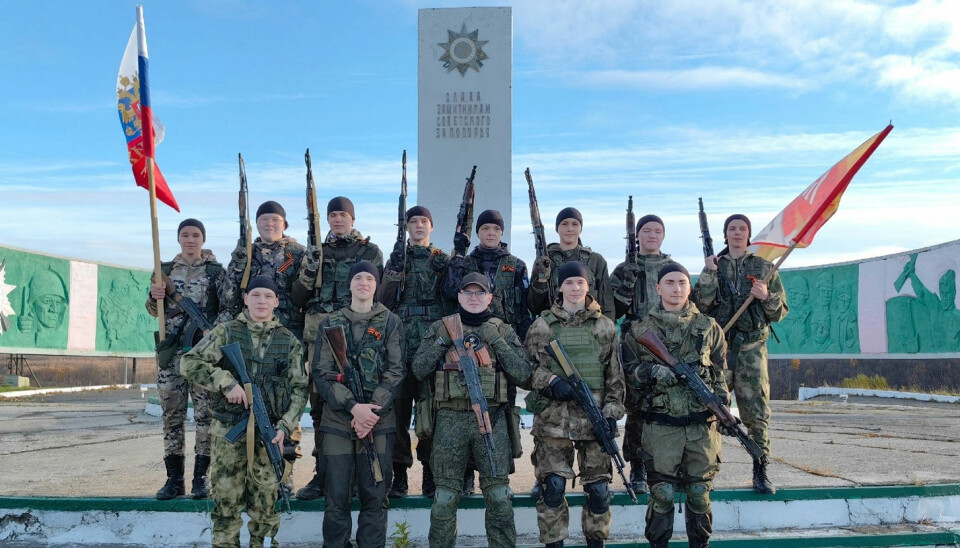
As Pechenga honors 'liberators' of Finnish lands, more local Russian men are reported killed in occupied Ukraine
Local authorities in the border region that used to belong to Finland celebrate the Soviet troops that 80 years ago seized control of the area. Today, descendants of the ‘liberators’ of Petsamo fight and fall in Moscow’s latest land grab.
In October 1944, Soviet troops launched a counter-attack on the Nazi German troops that for more than three years had tried to capture Murmansk. In only a few weeks, the Red Army overwhelmed Hitler’s Arctic troops and pushed them out of Soviet territory, through the Finnish region of Petsamo and more than 100 km into Norway’s Finnmark region.
On 22 October, the Soviet troops made it to Kolosjoki, the town that is known today as Nikel. Three days later, they pushed the Wehrmacht out of Kirkenes, the Norwegian border town that had served as a German logistics hub and military headquarters.
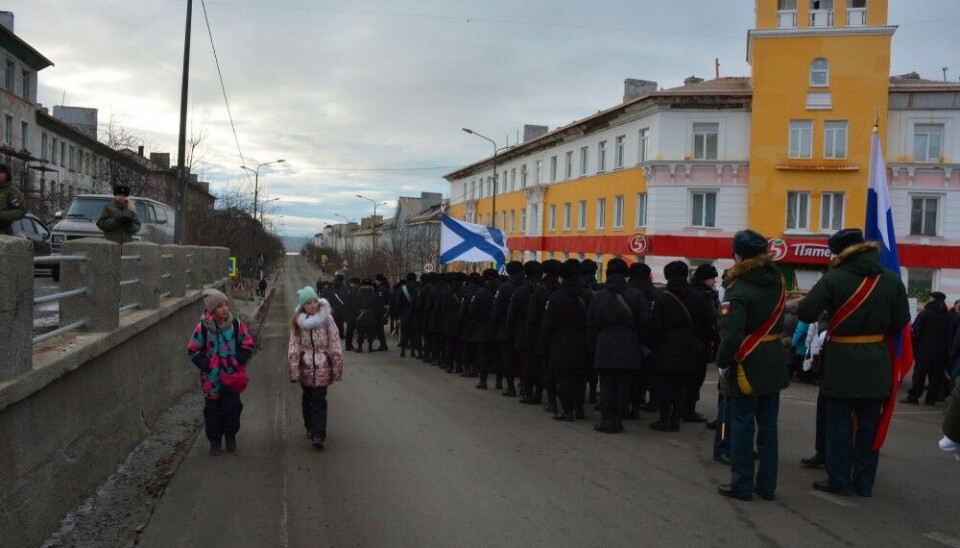
The most bloody and cruel war in the Arctic ever to have taken place appeared to have come to an end.
But while the Soviet troops pulled out of Kirkenes and eastern Finnmark after almost a year, they never abandoned Petsamo. The Finnish region that housed one of the world’s richest deposits of nickel and the strategically important seaport of Liinakhamari was ultimately annexed by Moscow. In 1947, the area was officially ceded by Finland to the USSR.
Ahead of the land grab, almost the entire local population was evacuated from the area, including hundreds of Skolt Sámi families. Soon, Soviet settlers moved in and ultimately renamed the area ‘Pechenga.’
Petsamo had been a fully recognized and integrated part of Finland. It was attacked and shortly occupied by Soviet troops during the Winter War of late 1939, but was returned to Finland in March 1940 and remained on Finnish hands until the Soviet troop reoccupied it once again in October 1944.
The Winter War followed the so-called non-aggression treaty between Stalin and Hitler, a pact that had catastrophic consequences for Finland, the Baltic states, Poland and other states and peoples located between the two dictatorships.
The local authorities in today’s Pechenga this week celebrate the 80-years anniversary of what they call a ‘liberation’ of Russian land. Regional leaders and politicians line up for ceremonies at the many war memorials in the area. Among them is Lyubov Cherepanova, Pechenga's representative in the Murmansk Duma, the regional legislative assembly.
Members of the local militant youth organisation Kolchuga show off their combat skills in front of the Culture Palace in Zapolyarny as part of this week's 80 years anniversary.
“We have come here, indigenous northerners, students, school kids, veterans, representatives of local authorities, tourists and many others, to lay down flowers and once again pay our respect for the eternal bravery of the soldiers-liberators,” she said in a ceremony on 15 October, according to her VK social media page.
According to Cherepanova, the soldiers “fought for the freedom and independence of Pechenga.”
“Their memory will live on as long as we protect it, as long as all of us gather to honour the ones that gave us peace and freedom,” she added.
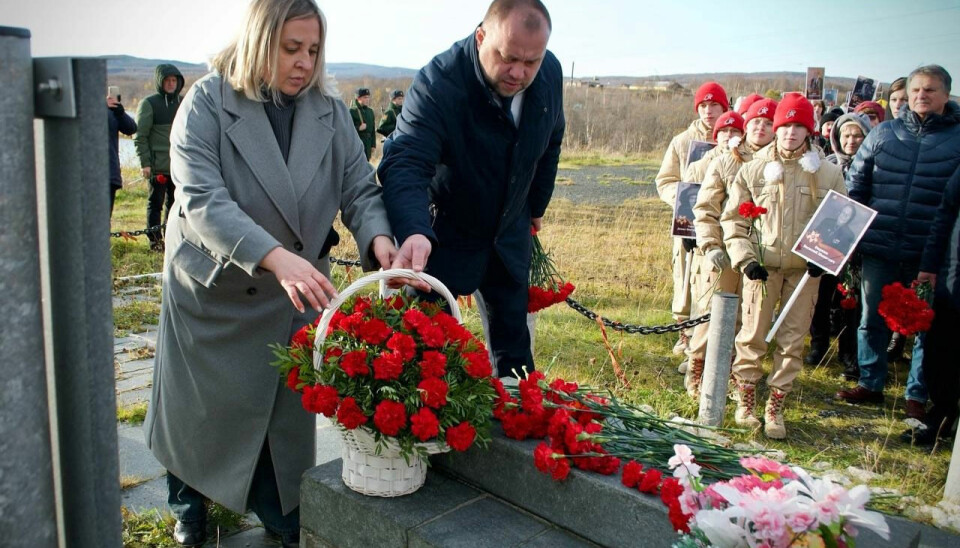
The politician did not make any mention of the region’s Finnish past and the forced takeover by the Soviet Union.
Across Russia, commemorative events for fallen soldiers in the Second World War increasingly coincide with rallies and meetings in support of today’s war in Ukraine. The same is the case in Pechenga.
Shortly after she attended the 80th anniversary event, she posed for the cameras in front of a truck loaded with equipment and aid for Russian warriors fighting in Ukraine. Cherepanova is a strong supporter of the onslaught on the neighboring country and has herself visited occupied lands.
“These goods will soon be sent to the front as part of a humanitarian convoy from Murmansk. It is a sincere support for the ones that stand up for the protection of Russia,” she said in a VK comment. “We are strong in our unity and believe in the just cause,” she added.
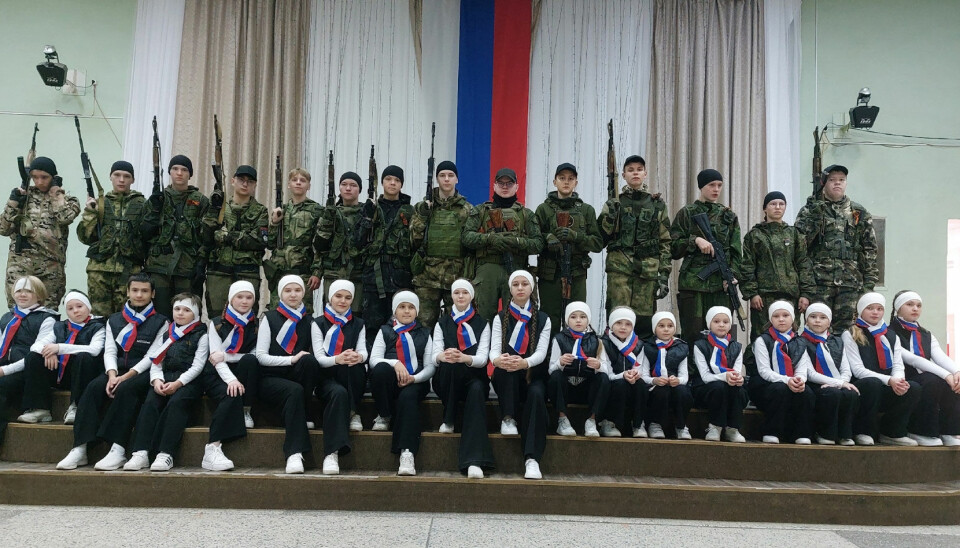
The municipality of Pechenga houses two major brigades and is strongly militarized. Thousands of men from the brigades have been sent to the front, and many hundreds have been killed. Among them are a significant number of local men born and raised in the area.
As the ceremonies to recognise the soldiers that fell during the 2WW got underway, the names of three more men killed in the current war against Ukraine became known to the local public.
Among them is Andrei Gabzhinov, a 25 year old man from Nikel, that worked in the nickel plant in Zapolyarny before he signed up for war, a local social media page informs.
Yuri Gorobets lived in Sputnik where he had served many years in the 61st Naval Infantry Brigade, a VK channel reports. He was originally from St.Petersburg.
Also Dmitry Maksimov, a professional soldier who had served in one of the brigades in the Pechenga area.
According to a Telegram channel that reports on the deaths of Russian combat troops, he was originally from Zapolyarny.
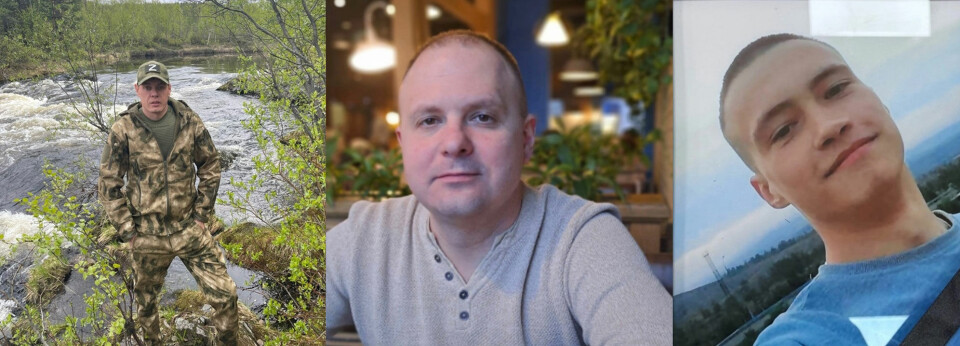
The three men are part of a quickly expanding number of local men who have been killed in action in Ukraine.
Since the full-scale war began in February 2022, the Barents Observer has kept a record of the names of men from the Kola Peninsula killed on occupied land. So far, the list includes 23 men from the Pechenga area.
The actual number of killed men from the former Finnish border region might be far higher.













